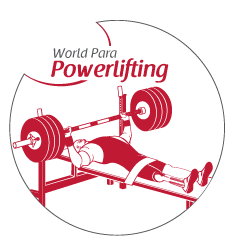Liberian Powerlifter Sanctioned for Three Months Following ‘Unique’ Anti-Doping Case
08.05.2012
“The IPC looks forward to working with NPC Liberia and Mr. Siaffa to educate other athletes in his community and to raise awareness about anti-doping in Paralympic Sport.”
The International Paralympic Committee (IPC) has announced that the Liberian Powerlifter James Siaffa has been suspended for three months for an Anti-Doping Rule Violation.
Siaffa returned an adverse analytical finding for Prednisone and its metabolite Prednisolone in a urine sample provided on 25 February 2012 during the 2012 FAZZA International Powerlifting Competition in Dubai, United Arab Emirates.
These substances are included on the World Anti-Doping Agency (WADA) 2012 Prohibited List under S9. Glucocorticosteroids and are consequently prohibited under the IPC Anti-Doping Code.
During February’s in-competition doping control test, Siaffa disclosed the use of a painkiller on his doping control form. During the IPC Anti-Doping Hearing he revealed he had done so because two weeks prior to the event he felt he had dislocated his shoulder and had visited a pharmacist in Liberia for medication to relieve the pain.
In a supporting letter to the Hearing, the pharmacist in question explained that he had prescribed medications to the athlete for his therapeutic use to help the shoulder pain. He also stated that the athlete had asked whether the medications were legal for competition and that he, the pharmacist, had looked them up and not found them listed on the Prohibited List. The Pharmacist told the athlete that the substances were legal for competition.
Taking into account the circumstances surrounding the case, and in accordance with the IPC Anti-Doping Code, Siaffa will serve a three month suspension, reduced from two years, for the offence beginning on 26 March 2012; the date from which he was notified of his Anti-Doping Rule Violation.
All results obtained from the date of the competition on 25 February 2012 and onwards, will be disqualified with all the resulting consequences including forfeiture of any medals, points and prizes. A financial sanction of €1,500, a fine normally imposed for anti-doping rule violations, was not imposed in this case.
Dr. Toni Pascual, Chairperson of the IPC Anti-Doping Committee, said: “The Hearing Panel was comfortably satisfied with the explanation that the athlete took the substance for therapeutic use only and not with the intention to improve his performance.
“Although the athlete had no Therapeutic Use Exemption to justify the substances in his system, he had informed the doping control officers at the time of his test that he had taken some medication.
“The evidence from the pharmacist was also vital in our decision making process as he revealed that the athlete, in the absence of having qualified National Paralympic Committee (NPC) Medical support staff to consult about medication, had tried to take necessary steps to ensure his medicines were not on the Prohibited List.
“Taking everything into account, the standard sanction of two years ineligibility and a 1,500 Euros fine was reduced. A sanction was still imposed however as the IPC Anti –Doping Code clearly states that an athlete is strictly responsible for any prohibited substances found in their samples.”
“The IPC looks forward to working with NPC Liberia and Mr. Siaffa to educate other athletes in his community and to raise awareness about anti-doping in Paralympic Sport.”
As a signatory of the World Anti-Doping Code (WADC), the IPC remains committed to a doping free sporting environment at all levels.
The IPC, together with the International Federations and the National Paralympic Committees, established the IPC Anti-Doping Code to prevent doping in sport for Paralympic athletes, in the spirit of fair play.





















